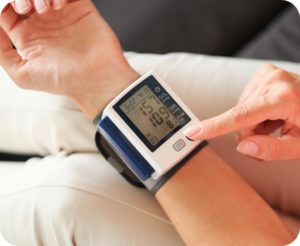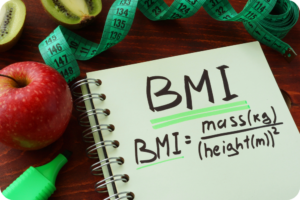Discover Everything You Need to Know About Life Insurance With High Blood Pressure in 2025 + YouTube Video
Are you searching to find life insurance with high blood pressure? Discover how simple it can be to buy a new policy with a pre-existing medical condition and receive preferred rates.
a new policy with a pre-existing medical condition and receive preferred rates.
Our carriers understand the importance of proper medical management and offer preferred rates to individuals with hypertension while using prescription medication.
Don’t let your health condition hold you back from protecting your loved ones and securing their financial future. With our expertise, we can help you navigate through the life insurance application process smoothly and easily so you can get approved for the coverage you need.
Applying for life insurance with high blood pressure is a simple process when applying with the correct insurers. Keep reading because the best is yet to come.
Table of Contents
Underwriting & Eligibility Requirements
Primary Elements Considered by Insurers
When you apply for life insurance with high blood pressure, the carriers will carefully assess the following:
1. Severity of Your Hypertension:
Properly managed high blood pressure is viewed favorably compared to uncontrolled high blood pressure, which will have a noticeable effect on your rates.
2. Chronic Medication Use:
Your use of medications will be noted by insurers and evaluated for their impact on managing any of your health conditions.
3. Lifestyle Factors:
Your application may be influenced by factors such as smoking, obesity, alcohol use, and others. Smoking will have the greatest impact on your application’s final outcome.
4. Additional Health Issues:
For those with hypertension and pre-existing health issues (such as diabetes or heart disease), insurance premiums may be elevated or coverage could possibly be declined if serious enough.
Policy Design Options
Conventional Life Insurance:
If your blood pressure is effectively managed, you could be eligible for standard or even preferred rates. These types of policies would be Term, Universal Life or Whole Life insurance.
High-Risk Life Insurance:
Insurance providers that cater to those with chronic health conditions often charge higher premiums.
Guaranteed Issue Life Insurance:
Medical exams are not necessary for these policies, but they may usually feature lower death benefits and higher premiums.
Simplified Issue Life Insurance:
These types of policies do require a health questionnaire but no medical exam and provide moderate death benefits. There is a reduced number of health questions required on these types of applications.
Tips to Improve Your Eligibility
Control Your Blood Pressure:
Do your best to maintain healthy blood pressure through medication, diet, and exercise. Consistent, safe pressure readings can improve your risk profile and open the door to lower rates.
Stable Readings:
Being able to show a stable history of managing your condition over the past few years is very important. Blood pressure readings that continue to rise and fall are not what doctors or insurers want to see.
Compare Carriers:
All life insurers have different underwriting standards and criteria. Working with an independent insurance agent such as us can help you find the best options and the lowest premiums.
Apply at the Correct Time:
If your blood pressure reading has recently been improving, waiting until your condition is stable for at least six months can help you qualify for better rates. Stability is very important, not just a good reading here or there.
Best Life Insurance Companies for High Blood Pressure?
Here are some of the best life insurance companies for hypertension, among other medical conditions. Remember that every applicant is different, and the best company for one person may not be the best for another.
We pre-screen our applicants to correctly choose the most applicable company that will offer them the lowest rates. Life insurance is not a one size fits all, type of insurance.
1. Prudential
2. Liberty Financial
3. AIG American General
4. Banner Life
5. Protective Life
6. Transamerica
We work with over 40 life insurance carriers and know from experience that these six carriers are very applicant-friendly for people with hypertension and offer some of the best rates.
How to Apply for Life Insurance With a Medical Condition: YouTube Video
Can High Blood Pressure Affect Life Insurance?
Having high blood pressure can affect your rates, but if your readings are within safe limits you’ll qualify for excellent rates as long as you don’t have any other medical conditions to be concerned about.
All life insurance companies pay attention to hypertension.
Carriers look for regular blood pressure readings that are stable and do not excessively fluctuate from day to day.
Getting life insurance with controlled hypertension is usually a snap with modern medications, proper diet and eliminating smoking and drinking excessive amounts of alcohol.
When the carrier’s underwriters see that excellent safety blood pressure readings are not apparent, a red flag goes up right away. The higher your blood pressure readings, the higher your rates could become or simply be declined.
Risk Factors for High Blood Pressure
The most critical issue with elevated blood pressure is the excessive damage placed on arterial walls caused by hypertension. These elevated pressure readings can and eventually will damage blood vessels and internal organs.
Higher blood pressure, and the longer it goes untreated, is a recipe for life-threatening damage. If elevated blood pressure is left untreated, it can lead to risk factors such as:
1. Heart Attacks & Strokes:
High blood pressure can thicken and harden the artery walls, leading to fatal heart attacks or massive strokes. This is the main reason that all the best high blood pressure life insurance companies take hypertension seriously.
2. Dementia:
Narrowing or partially blocking arteries can constrict and significantly limit blood flow to the brain. The result can be a case of dementia leading to a specific type of dementia (vascular dementia).
A stroke interrupts blood flow to the brain and can also cause vascular dementia. A stroke can even cause this form of vascular dementia.
3. Torn or Narrow Blood Vessels in the Eyes:
If your eye’s blood vessels are affected, it can cause partial or complete vision loss. This is another good reason to maintain controlled hypertension.
4. Aneurysms:
High blood pressure can cause your blood vessels to weaken and bulge out of shape, forming what is known as an aneurysm. The main problem is that if an aneurysm ruptures, it can be fatal. Unfortunately, a person will often hemorrhage to death before they can get to a hospital.
Elevated blood pressure can cause these aneurysms to start and steadily get more intense until they can burst from the steadily rising pressure.
5. Kidney Failure:
Restricted blood flow to the kidneys caused by hypertension can cause kidney damage or complete failure, which is also life-threatening. There is a direct correlation between your kidneys and elevated blood pressure.
6. Memory and Comprehension Issues:
Having this condition can also affect one’s ability to think, understand and remember. Many people with hypertension also experience poor memory that worsens over time.
Blood Pressure Classifications
Class
Systolic
Diastolic
Normal
120
80
Prehypertension
120-140
80-90
Stage 1 Hypertension
145-160
90-99
Stage 2 Hypertension
160-180
100-110
Major Hypertension
Over 180
Over 110
| Class | Systolic | Diastolic |
| Normal | 120 | 80 |
| Prehypertension | 120-140 | 80-90 |
| Stage 1 Hypertension | 145-160 | 90-99 |
| Stage 2 Hypertension | 160-180 | 100-110 |
| Major Hypertension | Over 180 | Over 110 |
Blood Pressure Can Increase With Age
A person’s average blood pressure reading may vary depending on their age. As people get older, they are more likely to encounter elevated blood pressure. This is due to the fact that blood vessels become stiffer and less flexible with age, which increases blood pressure readings.
Approximately half of all adults in the United States have high blood pressure to some degree.
Symptoms of High Blood Pressure?
There may be no symptoms of hypertension, which is why the condition is referred to as the “silent killer”.
Most people have no signs or symptoms, which is the tricky part. Even if pressure readings reach dangerously high levels, the patient doesn’t know it because there is no pain or discomfort.
The worst part of this medical condition is that you may never know you have it unless you are tested.
That is why it is essential to go to the doctor periodically. You can qualify for excellent rates by keeping your pressure readings in check. Some people complain of headaches, shortness of breath, or even nosebleeds.
However, these symptoms usually don’t reach the point of being life-threatening until a life-threatening stage is present.
This means that your high blood pressure has escalated to a possible advanced stage and you would not even know it. This is when the condition is at its most dangerous.
Primary Categories of Hypertension
Primary Hypertension:
For most people, there is no identifiable cause of high blood pressure. This type of condition is called primary hypertension, and it gradually develops over the years.
Secondary Hypertension:
An underlying medical condition can be the second type of cause of hypertension. This type is called secondary hypertension. Secondary hypertension tends to appear suddenly and causes a more advanced degree of damage than primary hypertension. Some medications can cause secondary forms of hypertension as a side effect, including:
Kidney problems:
Adrenal gland tumors :
Thyroid conditions:
Defects in the blood vessels that you were born with:
Medications, including birth control pills and cold remedies:
Illegal drugs such as cocaine and amphetamines:
Drinking alcoholic beverages in excess:
Causes of High Blood Pressure
The following are some of the leading causes of hypertension:
Current Age:
The risk of this condition increases as you get older. Through early middle age, or about age 40, hypertension is more common in men. Women will usually develop hypertension after age 60.
Family History:
High blood pressure tends to be passed along through family genes. Therefore, many people with hypertension also have hypertension in their parent’s health history.
Overweight & Obesity:
The more you weigh, the more blood you need to supply oxygen and nutrients to your tissues. Body fat also requires blood flow to be provided.
As blood volume circulates through your blood vessels, so does the pressure on your artery walls. When the pressure on the artery walls is high, it is called hypertension.
Limited Physical Activity:
People who are sedentary and inactive tend to have higher heart rates. The higher your heart rate, the harder your heart must work. This creates a more potent force in your arteries.
Lack of physical activity also causes people to become overweight or obese. Exercising is excellent for your overall health and reduces your hypertension.
Tobacco Products:
Smoking or chewing tobacco immediately raises your blood pressure. The dangerous chemicals in tobacco, such as nicotine and tar, can damage the lining of your artery walls.
This causes your arteries to narrow, increasing your blood pressure levels. Even inhaling secondhand smoke can increase and amplify your condition.
Sodium Intake:
Too much sodium (salt) in your diet can cause your body to retain fluids. The added fluids magnify your hypertension condition. You may have to work hard to limit the salt in your system. This is because just about everything you eat has salt added to it.
Insufficient Vitamin D:
Too little vitamin D in your diet can lead to high blood pressure. Vitamin D may affect enzymes produced by your kidneys that directly impact your blood pressure readings.
Alcohol Abuse:
Heavy drinking can damage your heart as time passes. Having more than two drinks a day may affect your blood pressure readings. Always drink in moderation.
Mental Stress:
High-stress levels can lead to a temporary increase in pressure. If you try to relax by eating more, using tobacco products, or drinking alcohol, you will only increase your problems.
Chronic Medical Conditions:
Chronic conditions that may also increase your risk of high blood pressure include cardiovascular conditions, kidney disease, and diabetes.
Children Can Also Be at Risk:
Although this condition is by far the most common in adults, children can also be at risk due to a growing number of kids’ poor lifestyle habits, such as an unhealthy diet, obesity, and lack of exercise.
This can also contribute to higher than normal blood pressure readings.
Excessive pressure levels on your arterial walls caused by this condition can damage your blood vessels. This can also damage the vital organs in your body. The higher your blood pressure readings and the longer they go uncontrolled, the greater the damage to your health.
Questions the Carriers Normally Ask
1. Do you have a history of elevated blood pressure readings?
2. Do you have a family history of high blood pressure?
3. What prescription medications are you currently taking?
4. What is your average blood pressure reading when tested?
5. When was your last blood pressure test?
These questions are essential so the medical underwriter knows what health classification to place you in. This will determine your final rate once your application has been completed.
Obesity and High Blood Pressure
High blood pressure is frequently linked to being overweight.
Height and weight will have a direct reflection on hypertension. Many overweight people have high blood pressure , which usually goes hand in hand. A medical underwriter will closely examine your most recent blood pressure readings.
, which usually goes hand in hand. A medical underwriter will closely examine your most recent blood pressure readings.
They will also look at your long-term history with the condition. There are blood pressure readings that will determine what your status is as a medical risk.
What Are Health Classifications?
The rate classifications listed below are the three main classes you will normally be approved for. You can read our health classification article for more information.
Standard Rate Class:
This generally requires a steady reading that does not exceed 150/90, controlled by medications. Readings may be higher for older age groups of those over 50 and 60 years of age.
Preferred Rate Class:
You may be considered low-risk if your readings are under 140/90, controlled by medication. Also, a reading of 150/90 without a prescription depends on the insurance carrier. This would entitle you to lower premiums than those in the Standard rate classification.
Preferred Best Rate Class:
If your blood pressure reading is under 140/90 and you are not on any medication, you are considered to be in the normal range. If you are not considered to have hypertension, you would be eligible for the lowest possible premium rate class.
Health Questionnaire
If you would like us to provide you with an accurate custom rate quote specific to you, please complete this health questionnaire. Rest assured that your information is secure and confidential.
assured that your information is secure and confidential.
You can either email or fax it back to us and we will be able to provide you with an accurate projection of what your rates will be if you apply.
Our Contact Us page contains our email address and fax number. Don’t hesitate to let us know if you have any questions. We are available seven days a week!
Our Final Thoughts
If you are planning on applying for life insurance with high blood pressure, call us for a free quote right over the phone. We can quickly point you in the right direction.
You can activate our website’s quote engine and compare instant life insurance quotes from over 40 companies.
You will then get an idea of the approximate cost for the plan design you are interested in. If you have any medical conditions, we can go over all your options with you before you apply.
Many thanks for reading this blog post!
All the best,
Jack Venturi
For any questions you may have, you may call us at 708-334-6226 and we will provide a prompt response.


